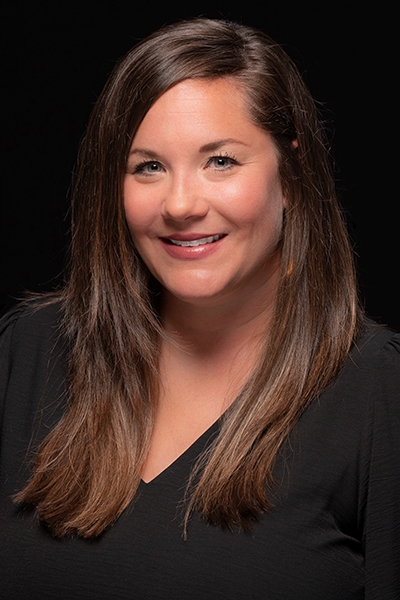Professor Maria Ball recently helped create a comprehensive guide aimed at improving school-based occupational therapy services in Arkansas.
Ball is the academic fieldwork coordinator and a clinical assistant professor in the Occupational Therapy Doctorate Program, a joint offering between the College of Education and Health Professions at the University of Arkansas and the University of Arkansas for Medical Sciences.
"Guidance for Occupational Therapy in Arkansas Public Schools" published recently after three years of intensive work among several top occupational therapy practitioners from across the state, including Ball. The group reviewed guidance documents from other states, consulted with national experts in school-based occupational therapy, and collaborated with the Arkansas Department of Education's special education unit to create the document.
Before joining the university doctoral program in 2020, Ball worked as a school-based occupational therapist at the Boston Mountain Education Cooperative for 12 years. Her experience uncovered the need for a statewide guidance manual.
"It was a daily struggle to differentiate our role from outpatient therapy services and really highlight our place in the public school system," Ball said. "This document exemplifies the value of occupational therapists in the schools — an area of practice I deeply adore."
The web-based document will be routinely updated to reflect new research or changes in federal and state policies.
Occupational therapists help people whose physical, adaptive, cognitive, behavioral, social or mental health concerns compromise their engagement in life — whether that be at home, work, school or in the community. The profession is more in demand lately as therapists apply their knowledge of biological, physical, social, and behavioral sciences to evaluate and intervene with people across the lifespan in places outside of traditional rehabilitation hospital and clinics.
Children grow and learn through activities — occupations — that they engage in every day. And they need to learn much more in school than just reading and math, including appropriate social interactions with peers on the playground, literacy activities like writing or communicating — even opening their lockers. School occupational therapists work with students with and without disabilities. Their expertise in environmental modifications and task and occupational analyses help improve student academic progress and social and emotional learning.
Sherry Muir, director of the U of A occupational therapy program, noted, "Improving school-based occupational therapy practice will positively impact children not only while they are receiving occupational therapy, but throughout their entire lives."
She added, "This important work from Dr. Ball and her collaborators supports the missions of the universities and the Department of Occupational Therapy to improve the lives of Arkansans. We're very fortunate to have Dr. Ball on our faculty and are very proud of this significant contribution to the state education system."
Topics
Contacts
Shannon G. Magsam, director of communications
College of Education and Health Professions
479-575-3138, magsam@uark.edu
